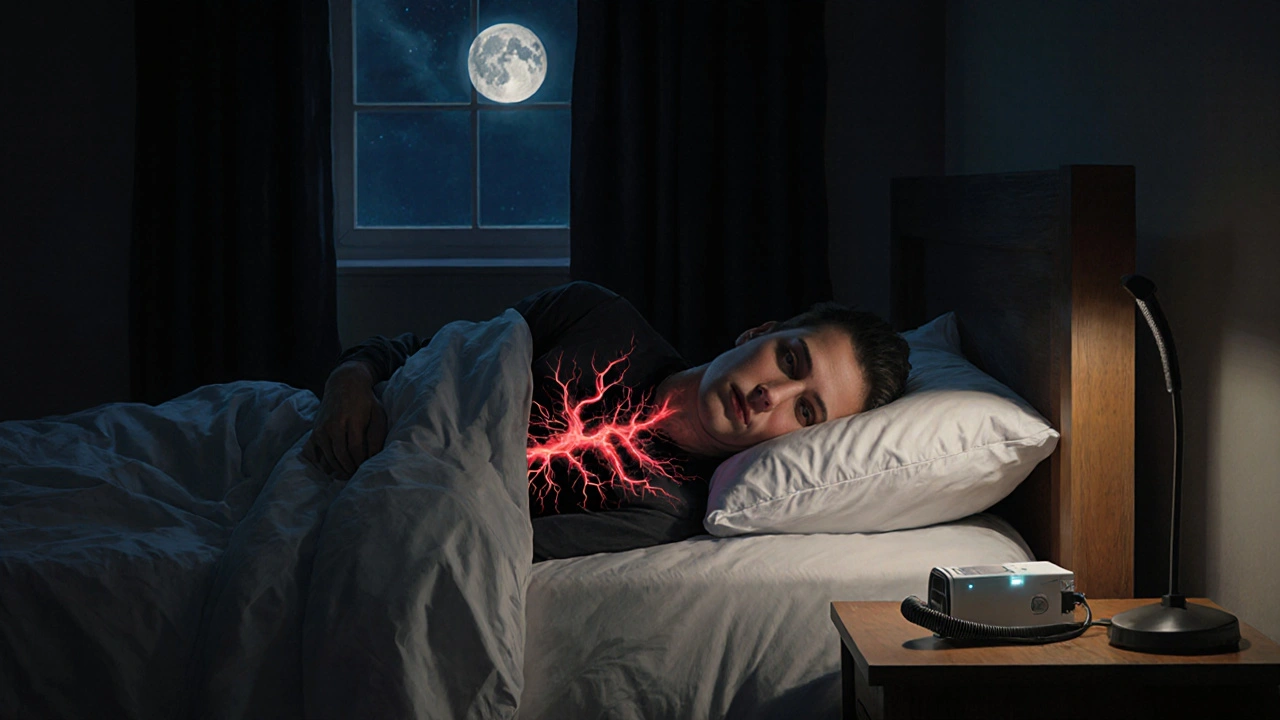Sleep Apnea: Causes, Risks, and How to Manage It Effectively
When you have sleep apnea, a condition where breathing repeatedly stops and starts during sleep. Also known as obstructive sleep apnea, it’s not just loud snoring—it’s your body struggling to get oxygen while you’re asleep. Millions of people live with it without knowing, mistaking daytime tiredness for aging, stress, or poor sleep habits. But untreated sleep apnea doesn’t just make you groggy—it raises your risk for high blood pressure, heart attacks, and even diabetes.
It happens when the muscles in your throat relax too much, blocking your airway. That’s why overweight people, men over 40, and those with a thick neck or narrow airway are more likely to have it. But it’s not just about weight. Some people have it even if they’re fit. Family history, smoking, and alcohol use make it worse. And here’s the catch: you usually don’t wake up fully when it happens. Your brain just nudges you to breathe again, so you never get real rest. Over time, that fragments sleep so badly you feel exhausted even after 8 hours in bed.
That’s where CPAP therapy, a device that delivers steady air pressure to keep your airway open. Also known as continuous positive airway pressure, it’s the most proven treatment for moderate to severe sleep apnea. It’s not perfect—some find the mask uncomfortable—but for most, it’s life-changing. Others try mouthpieces, position training, or weight loss. Surgery is an option, but it’s not a quick fix. The key is getting diagnosed. If you snore loudly, wake up gasping, or your partner says you stop breathing at night, don’t ignore it. A simple sleep test can confirm it.
And while sleep apnea is often linked to snoring, the noisy breathing that often signals airway obstruction. Also known as nocturnal snoring, it’s not always a sign of the condition, but it’s a major red flag. Not everyone who snores has apnea, but nearly everyone with apnea snores. The difference? Apnea involves silent pauses—sometimes 10 seconds or longer—followed by a loud snort or choke as you start breathing again. If that’s you, you’re not just disturbing your partner. You’re stressing your heart, brain, and metabolism every night.
What you’ll find below are real stories and practical guides from people who’ve been there. You’ll see how others managed side effects from sleep meds, what actually works with CPAP machines, how weight loss helped some, and why some people still struggle even after treatment. No fluff. No theory. Just what works, what doesn’t, and what to ask your doctor next.

Sleep Apnea and Cardiovascular Risk: How Snoring Could Be Hurting Your Heart
Sleep apnea isn't just noisy sleep-it's a hidden driver of high blood pressure, heart attacks, and strokes. Learn how breathing pauses at night silently damage your cardiovascular system-and what to do about it.
Read more